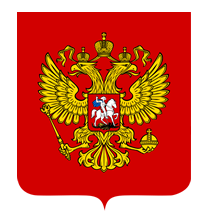Russia: Government
Due to military action in Ukraine, the information on these pages may not reflect current conditions in the country.
Key Figures
- Chief of State:
- President Vladimir Vladimirovich Putin
- Head of Government:
- Premier Mikhail Vladimirovich Mishustin
Overview
- Government Name:
- Russian Federation
- Constitution:
- Adopted: 1993; Details fundamentals of the constitutional system, rights and liberties of man and citizen, the federative system, president of the Russian federation, federal assembly, government of the Russian federation, the judiciary, and local self-government.
- Government Type:
- Federation

Index of Economic Freedom
Country Risk Rating
Government Branches
| Main Powers | Election Process | Election Cycle 1 | |
|---|---|---|---|
| Executive | President is not the head of the executive branch, but rather a guarantor of the constitution, can submit draft legislation, deals with domestic/foreign policy. Premier determines operating priorities of the government, represents the government in foreign relations, signs acts of the government. |
President is elected by absolute majority vote through a two-round system. Premier is appointed by the president. |
4 years |
| Judicial | Constitutional Court rules on the constitutionality of laws, Supreme Court has original jurisdiction in some cases and is the court of last resort for cases heard in lower courts, and Supreme Court of Arbitration is the court of final instance in commercial disputes and supervises the work of lower courts. |
Nominated by the President of Russia and appointed by the Federation Council. |
Until resignation |
| Legislative | Federation Council must cooperate with the State Duma in the completion and voting upon draft laws. Federal laws concerning budgets, customs, regulations, credit monitoring, and the ratification of international treaties are to be considered by the Council after they have been adopted from the State Duma. The State Duma is responsible for the appointment and dismissal of the Chairman of the Central Bank of Russia, Chairman and half of the auditors of the Accounts Chamber, and the Commissioner for Human rights. Also must decide the issue of confidence, announce amnesty, and bring charges against the President for his impeachment. |
Federation Council members are appointed by regional governing councils, and in the State Duma, 225 members are elected through a closed-list proportional representation system, with the remaining 225 members elected by plurality vote in single-member constituencies. |
Federation council: No specified term limits; Duma: 4 years |
Regional Trade Blocs
International Organization Participation [2]
Environmental Agreements [3]
Tax Information [2]
- Tax Authority:
- Ministry of Finance of the Russian Federation & Federal Tax Service
- Tax Name:
- VAT
Sources:
- ElectionGuide http://www.electionguide.org/
- EY, http://www.ey.com
- CIA World Factbook, https://www.cia.gov/the-world-factbook/
- U.S. Bilateral Relations Fact Sheets http://www.state.gov/r/pa/ei/bgn/


